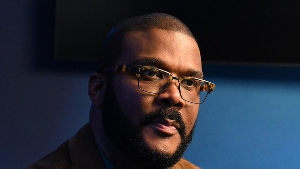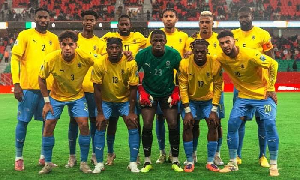One of his children, now an adult son in his early sixties, Issah Salifu, was my senior in secondary school; so the epic story of Superintendent Salifu Dagarti reads pretty personal to me (See “The Story of Supt. Salifu Dagarti; Man Who Took a Bullet for Kwame Nkrumah” Ghanaianmuseum.com / Ghanaweb.com 12/29/19). It reads very personal to me, because I have always wondered how it felt like growing up without the presence of a father who “deliberately” lost his life in the very patriotic act of preserving the life of an increasingly unpopular dictatorial and tyrannical Pan-Africanist proponent. Now, those words are a cacophonic orchestration of the description of Ghana’s first postcolonial president, to wit, Mr. Kwame Nkrumah. But they are, nevertheless, a strikingly accurate description of the man. It also goes without saying that like the life of any politically ambitious personality of many parts, Nkrumah was a very complex man. Towards the end of his regime, that is, the immitigably extortionate government of the Convention People’s Party (CPP), President Nkrumah came to increasingly resemble a cartoon character, if also because his actions and reactions became increasingly and nauseating predictable.
It would be interesting, at least for me personally, to know what the adult children of Supt. Salifu Dagarti felt about the heroic act of their father then and now, some 55 years later. I am somewhat inclined to guess that one of them, Ms. Aisha Salifu, a very successful Nurse Practitioner, I suppose, whom I had the chance to meet among the entourage of Vice-President Mahamudu Bawumia several years ago, right here in Bronx, New York, at an electioneering campaign fundraiser, may definitely have a significantly different opinion of the president for whom her own father lost his precious life in the process of saving, largely and obviously because of her political and ideological affiliation today. When I first met Aisha here in The Bronx some four years ago, the first statement that I made to her, after asking for confirmation whether, indeed, she was the daughter of the Great Supt. Salifu Dagarti, was that I had known her brother, Issa, as my senior in secondary school, that is, St. Peter’s Secondary School, Okwawu-Nkwatia, also popularly known and called “PERSCO.”
These days, though, secondary schools in Ghana are called “High Schools,” perhaps a label that we have copied from the Americans, whose high schools we casually made a mockery of while I was coming up, obviously because our former British colonial masters and mistresses had told us that American education, in general, left much to be desired, in terms of quality and rigor. I suppose the British still prefer to call their high schools by the label of “Secondary Schools.” In some sense, though, it appears as if the very concept of “High School” sounds more pleasantly academic and pleasantly pompous as well. Talk of academic pomposity. There is an uppity sense of great achievement in the connotation of the expression, the terminology, that is, as opposed to the relatively more modest label of “Secondary School,” the first of which descriptive word reeks of something of an afterthought or marginally significant. After all, who wants to be part of anything that sounds like a veritable institutional afterthought rather than the real deal?
She, that is, the stately and modestly comely Aisha Salifu, would inform me that my good, old Senior Issa Salifu was domiciled in Germany. Incidentally, PERSCO was one of the few secondary schools in Ghana that taught Deutsch, the German language, while I was coming up. Then, there was Herr Atsu, our German-language teacher whom we also called our “German Master.” In those days, secondary school teachers were called “Masters,” while teacher-training college teachers were called “Tutors.” The rudimentary label of “teacher” was specially set aside for primary and middle school teachers, “cyto” teachers, that is. I was not surprised that Issa Salifu would end up in Germany, because I vividly remember Herr Atsu propagandistically distributing a pictorial magazine called “Scala” and trying to use it to recruit students into his German class. Only a few of us ended up being successfully snagged by the Scala fishnet of Herr Atsu. We shunned German after the compulsory free three years when we had to take a foreign-language class. The problem was that the failure rate in “O”-Level German was too high for any student to risk their time and chances for university admission. It was something like 80-percent.
I still vividly remember Senior Issa Salifu – I never really heard anybody refer to him only by his first name of Issa while I was at St. Peter’s or PERSCO. We were in the same St. Augustine House, the “Kotoko”-red-sporting house jersey boys. He was always known and referred to as Issa Salifu or Senior Issa Salifu, by those of us who were his juniors. I also vividly remember him as a very talented soccer player and would not be the least bit surprised if he had done some soccer playing or even coaching in Deutschland. Perhaps even a stint of professional soccer playing. But what I most vividly recall about my historic encounter with Aisha Salifu – for like the adult children of Malcolm X or Martin Luther King, Jr., I tend to envisage the Salifus, each and every one of them, as our national institutions and monuments – was the fact that she seemed to be very surprised that I was younger than her younger brother, Issa. Conversely, I was also surprised to learn that Issa was actually the younger sibling of Aisha and not vice versa.
Interestingly, Aisha’s surprise at my “youthfulness,” and I get this quite a lot from time to time, had much more to do with the level and the general contents of my literary and media fare on Ghanaian politics. You know, not very long ago, a Ghanaian-born man who claimed to be 80 years old sent me an electronic missive from somewhere in Canada. Unlike Aisha, who seemed to be quite impressed and enthusiastic about the general themes, breadth and thrust of my columns, however, the Canada-based e-mailer wanted to know how old I was when most of the events I had been writing about were going on or happening. The letter writer sounded far less curious than sarcastic, and I found his query to be quaintly absurd. You see, I am partially a historian by training and thought that the letter writer understood something reasonably basic about the nature of the collective memory, as reflected by the extensive corpus of historical writings on postcolonial Ghanaian history or the history of any other African country, for that matter. You see, the decision to teach English as a college professor, for me, was primarily an economic necessity. Besides, the two disciplines are not essentially very far apart, when one gives them a critical examination, respectively. They are fundamentally two sides of the same cultural coin. And thus far, I don’t think I have done that very badly at it. You see, at St. Peter’s, I took both the English language and History awards. And the English literature prize as well.
By Kwame Okoampa-Ahoofe, Jr., PhD
English Department, SUNY-Nassau
Garden City, New York
E-mail: okoampaahoofe@optimum.net
*Visit my blog at: kwameokoampaahoofe.wordpress.com Ghanaffairs
Opinions of Saturday, 25 January 2020
Columnist: Kwame Okoampa-Ahoofe, Jr., PhD
The Salifu Dagarti story is a mixture of heroic professionalism and patriotism, but… - Part 1
Entertainment














